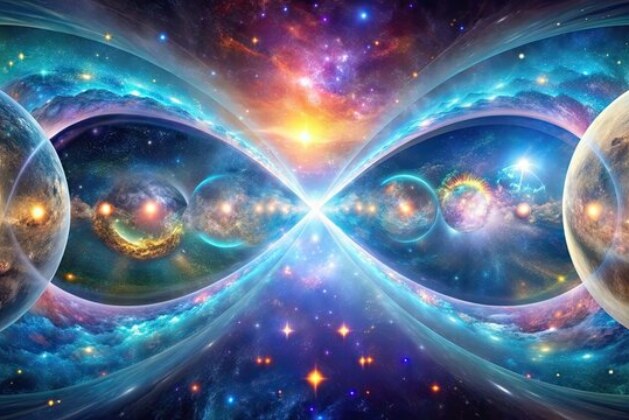Have you ever experienced that eerie feeling of déjà vu, where a moment feels strangely familiar, as if you’ve lived it before? While science often attributes it to quirks in the brain, some fascinating theories suggest a deeper connection — one that might involve parallel universes and alternate realities. The multiverse theory, once confined to the realm of speculative physics, offers a thrilling explanation for such phenomena. Let’s dive into how the multiverse might unravel the mysteries of déjà vu and alternate histories.
Table of Contents
Understanding Déjà Vu: More Than Just a Brain Glitch?
Déjà vu, a French term meaning “already seen,” is a common experience where individuals feel as though they have lived through the present situation before. For decades, psychologists and neuroscientists have studied it, often attributing it to memory misfires — where the brain mistakenly recognizes a new experience as familiar due to overlapping neural signals.
However, these explanations, though plausible, don’t fully capture the profound sensation some people report, including a sense of knowing what will happen next or encountering events that seem out of sync with their own timeline. This has led thinkers and scientists alike to explore more extraordinary possibilities.
The Multiverse Theory: An Overview
The multiverse theory suggests that our universe is just one of countless others, each with different versions of reality. This concept emerges from quantum physics, cosmology, and string theory, proposing that these parallel universes may coexist, occasionally interacting or influencing one another.
Imagine a cosmic web of countless worlds, where every decision or random event branches into a new universe with its own distinct history. In some of these worlds, time might flow differently, events unfold in unique ways, or alternate versions of ourselves live divergent lives.
How Could the Multiverse Explain Déjà Vu?
One compelling hypothesis links déjà vu to the multiverse — that this fleeting feeling arises when our consciousness momentarily intersects with or “tunes into” a parallel universe where events have already occurred. Essentially, déjà vu could be a brief overlap or “glitch” between realities, allowing us to experience fragments of alternate timelines.
This theory also resonates with accounts of people who experience déjà vu intensely or with precognitive qualities, suggesting that these moments might be glimpses into histories where events have already played out.
Alternate Histories: When Worlds Diverge
The multiverse doesn’t only explain déjà vu; it opens the door to the idea of alternate histories. In different universes, history might have unfolded differently — wars with alternative outcomes, technologies evolving along new paths, or even the existence of societies and cultures unlike our own.
This concept isn’t just science fiction; it’s a serious area of theoretical physics and philosophy. If the multiverse exists, every “what if” moment we imagine may have a universe where that reality is true. From an educational perspective, exploring alternate histories helps us understand how small changes can drastically affect outcomes — a valuable lesson in history, decision-making, and the complex nature of reality itself.
Scientific Skepticism and Future Exploration
While the multiverse theory offers exciting possibilities, it remains largely theoretical with no direct experimental proof as of now. Critics argue that these ideas are difficult to test or falsify, which challenges their scientific validity.
Nonetheless, advances in physics, such as experiments related to quantum entanglement, cosmic microwave background radiation, and particle physics, continue to probe the foundations of reality. The quest to understand phenomena like déjà vu through the lens of the multiverse remains a captivating frontier for both scientists and philosophers.
Conclusion
The mystery of déjà vu has puzzled humanity for centuries, and the multiverse theory provides a thrilling framework that might explain this elusive phenomenon as well as the concept of alternate histories. Whether or not parallel universes exist, exploring these ideas expands our understanding of consciousness, reality, and the infinite possibilities of existence.
For students, science enthusiasts, and curious minds alike, delving into the multiverse offers not only fascinating scientific concepts but also sparks the imagination about what lies beyond our observable universe. Who knows? The next time you feel that strange sense of familiarity, it might just be a fleeting window into a parallel world.
Read More: James Webb Space Telescope: Humanity’s Greatest Leap Into the Unknown




